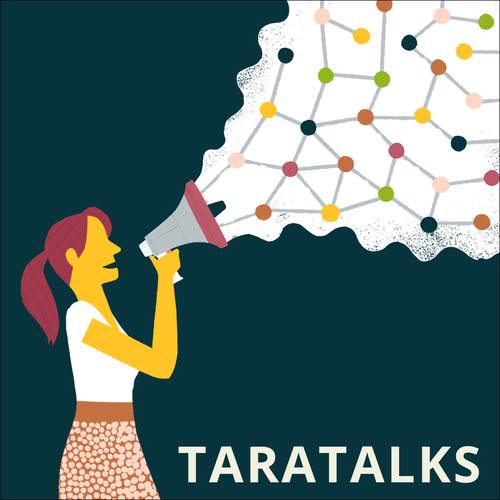You’re a new working mother in STEM—and you’re trying to balance your career with your life and not hit the maternal wall. You have a great boss. She’s always telling you that you can leave early to be with your baby and that you can skip meetings to make that happen. That’s a good thing, right?
Not really. While that sounds like it’s a well-meaning gesture, taking advantage of that kindness may have consequences for your career. This includes hitting the maternal wall and ultimately widen the gender gap in STEM, according to Isabel Torres, co-founder of Mothers in Science, a non-profit organization that provides support to mothers and caregivers, raises awareness of gender stereotypes and motherhood bias.

“A lot of the comments and assumptions [about how to help working mothers] are benevolent; people will tell a mother— their employee—that she can go home earlier, but this isn’t good,” explains Isabel, who has a PhD in genetics and is an academic editor and science communicator. “They wouldn’t say that to a father, so this is passing on the message that you should be home. You shouldn’t be here. And this will make the mother feel guilty without even knowing why.”
How does parenthood affect career advancement for working mothers in STEM?
Motherhood guilt—and how it influences decisions STEM mothers make about their careers—is just one of the issues Isabel and her group explored in their global survey they launched last year. The goal was to collect data on how parenthood affects the career advancement of people working in STEMM fields (the second M is for medicine.)
“The most impressive—and sad thing in a way—is we now have data that shows that the maternal wall–bias and discrimination against mothers–is widespread in STEM and across the world,” Isabel shares with Gotara founder and CEO D Sangeeta at a recent TARATALK.
“The extent of the problem was surprising—we didn’t expect it to be that bad. The survey was done for the situation pre-pandemic—before schools and daycare centers were closed—so we imagine the situation has been magnified with moms taking on more responsibility at home. “Even before the pandemic, women did up to three times more childcare and housework than men. And this hasn’t changed in decades.”
The full results haven’t been published yet, but in an article Isabel co-authored in Scientific American, she revealed that globally 34% of mothers leave full-time STEMM employment after they have children.
“We had mothers telling us they went on maternity leave, and when they came back, they were fired,” Isabel recounts. “One academic researcher shared that she was told that being a scientist is a full-time job that it isn’t possible for mothers. Other women said their commitment to their jobs was questioned because they had children. One woman shared that her boss told her she should have mentioned she had kids on her CV as he wouldn’t have hired her. The stories go on and on. We have the evidence now that this is a problem, and these barriers are out there. But they are mostly invisible.”
Working STEM Mom Guilt #itsreal
When it comes to guilt, while most working mothers will say—and believe—it’s self-inflicted, Isabel says that isn’t the case. She notes that most fathers don’t feel guilty because they’re not dealing with the subtle—and sometimes not so subtle–pressures that they should be home with their babies.
Public Policies that Widen the Gender Gap in STEM
If a STEM mother decides to stay home for 12 months—and her company generously tops up the childcare subsidy she receives from the government, that’s got to be a good thing, right????
Nope.
In their study, Mothers in Science found the #2 reason women say they stay home is because they can. (The #1 reason is below, and it will surprise you.)
“If only women take advantage of taking time off, their careers will be affected,” notes Isabel adding it only increases the gender gap. “If a government has a policy where it offers eight months maternity leave to moms and two weeks to dads, people are going to take it, and a policy like this creates inequalities.”
Flexibility bias for part-time working mothers in STEM
While their study revealed universal issues, there are striking differences in the pressures some women feel in certain countries to go part-time.
“We had moms in Germany saying they were being bullied into working part-time,” says Isabel. “If they don’t, they’re told they’re a bad mom. We estimate between 50-70% depending upon the sector [go part-time]. In Australia, there are also huge numbers of mothers going part-time and not fathers. In the U.S., we see much less, and in some countries hardly any because it’s not possible for women to work part-time.”
If a woman opts for a part-time role, she runs the risk of encountering flexibility bias. “People will assume you are less competent; that you are less driven; that you are less committed to your career,” cautions Isabel.
What needs to be done to help working mothers in STEM?
1. Create a space where women can breastfeed or pump in the office.
A lack of space to either breastfeed or pump at work was the #1 reason moms stayed home longer than they may have liked. “If this space were created, it would encourage many more women to return to work sooner after giving birth,” notes Isabel, adding, “They won’t be forced to stay at home, just to breastfeed.”
2. Legislate equal maternity leave policies.
Equal parental leave exists in very few countries, yet it would be one way to balance things out, so women aren’t the only ones stepping out of their career track when they have children. “It doesn’t mean we have to end part-time or long maternity leaves, but it has to be equal – men have to be encouraged, and it has to be allowed.
3. Stop blaming working mothers. They’re not the problem.
“There’s so much bullying and microaggressions and people judging and criticizing [mothers],” says Isabel. “I think women internalize all of this and always try to overcompensate (and) it’s never enough. We just have to learn to ignore all that and trust in our competence and our skills. We don’t have to prove anything to anyone.” And despite all the well-meaning self-help initiatives that encourage mothers to be more confident, to get over imposter syndrome and to work on their work-life balance, Isabel’s message is clear: “There’s nothing wrong with you! You have to be aware there are structural barriers in the workplace and our society that very subtly push us out … push us to make decisions to put our career aside.”
4. Talk to other working mothers in STEM.
“We have to be aware and speak up because mothers can be very isolated,” notes Isabel. “It’s by talking and sharing experiences that we realize that it’s not us. We have to spread awareness of these kinds of barriers and pressures.”
5. Be aware of subtle external pressures.
“I was eager to go back to work (after Isabel’s 4th child) because I knew this was what I wanted and what I needed. It’s a personal choice. Do what’s best for you; don’t let other people or society make you feel guilty one way or the other.”

#HerStory

Follow
Isabel’s Working Mother STEM story
Isabel has four children—but before we share how she approached working and parenting, let’s look back to the time when she was a child.
Isabel is based in France, was schooled in the U.K. and was born and raised in Portugal. She says she was a curious kid who always opened things up to see how they worked on the inside.
When she recounts her first high school love, it has nothing to do with a boy. She says she fell in love with cells the moment she looked down the lens of a microscope in high school.
“It just clicked for me,” she recalls. “I thought they were so beautiful. I could look at them for hours. I don’t have any scientists in my family, but my family and especially my grandfather were very supportive of my dream to become a scientist.”
Isabel went on to earn a PhD in genetics from the University of Cambridge in England and a cell biology postdoc. She decided to leave the lab behind when she realized that more than doing science, she enjoyed explaining it. Isabel—quite appropriately—launched a project, Microscope for Schools, which is still going today. She also has a scientific editing business and developed a science communication platform called prettysmartscience.com.
Isabel’s experience balancing motherhood and her STEM work demonstrates how culture influences a woman’s decision. After she had her twins in the U.K., she took off eight months because that was the norm. Just after having baby #3 and without having a job aligned, she moved to France to follow her (now ex) husband, also an academic, because he had secured a position there.
“I can’t blame my ex-husband,” says Isabel. “He never asked me to do it. It’s just women automatically self-sacrifice. I remember telling myself, ‘Oh, his career is more important to him than mine is to me.’ And then, of course, later, you realize. ‘No, it’s not.'”
In hindsight, Isabel wishes someone had challenged her or asked her why she made that sacrifice. “That’s the problem; it’s so ingrained in our society that women come second, and their career is not as important as being a mother. No one ever questioned my decision.”
Later, when she and her then-husband moved to France, it was a different story. With her third child, she thought she’d take a year because of her U.K. experience, but she soon realized that this felt “weird” in France, where women take between two to three months of maternity leave. For her fourth child, Isabel was back at work after five months, when she found childcare.
“I hope that other women realize that their career and their work is part of their identity, and they don’t have to erase their identity for their family.“
If you would like help scaling that maternal wall, join Gotara and get trusted advice from senior STEM mothers who know what it means to balance a career and parenthood.






